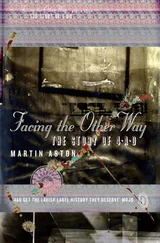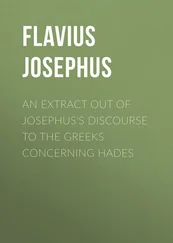Sarah Caudwell - The Shortest Way to Hades
Здесь есть возможность читать онлайн «Sarah Caudwell - The Shortest Way to Hades» весь текст электронной книги совершенно бесплатно (целиком полную версию без сокращений). В некоторых случаях можно слушать аудио, скачать через торрент в формате fb2 и присутствует краткое содержание. Жанр: Иронический детектив, на английском языке. Описание произведения, (предисловие) а так же отзывы посетителей доступны на портале библиотеки ЛибКат.
- Название:The Shortest Way to Hades
- Автор:
- Жанр:
- Год:неизвестен
- ISBN:нет данных
- Рейтинг книги:5 / 5. Голосов: 1
-
Избранное:Добавить в избранное
- Отзывы:
-
Ваша оценка:
- 100
- 1
- 2
- 3
- 4
- 5
The Shortest Way to Hades: краткое содержание, описание и аннотация
Предлагаем к чтению аннотацию, описание, краткое содержание или предисловие (зависит от того, что написал сам автор книги «The Shortest Way to Hades»). Если вы не нашли необходимую информацию о книге — напишите в комментариях, мы постараемся отыскать её.
The Shortest Way to Hades — читать онлайн бесплатно полную книгу (весь текст) целиком
Ниже представлен текст книги, разбитый по страницам. Система сохранения места последней прочитанной страницы, позволяет с удобством читать онлайн бесплатно книгу «The Shortest Way to Hades», без необходимости каждый раз заново искать на чём Вы остановились. Поставьте закладку, и сможете в любой момент перейти на страницу, на которой закончили чтение.
Интервал:
Закладка:
You will perhaps think it heartless of me, but I was enjoying myself more than if the sea had been entirely smooth. I don’t know how to describe to you, Julia, how splendid it is being at the helm of a sailing-boat in a firm wind on the open sea — there’s nothing like it in the world. I suppose one might compare it to having a very good day in court — I don’t mean when it all goes well from the start, but the sort of day when the judge begins by thinking your witnesses are liars and there’s a House of Lords decision against you, and you bring him round gradually to taking a more sensible view and finding in your favor: well, it’s something like that, but better.
“I didn’t know,” said Julia, amazed at understanding her friend so little, “that Selena thought anything was better than that.”
We made reasonable progress, close-reaching at a speed of about five knots on a course almost due north and parallel to the coast of Epirus: this is what the books on navigation would call “an aggressive littoral”—an almost unbroken line of oatmeal-colored cliffs dropping straight down into the sea, with occasional clumps of dark green scrub, like undernourished spinach, trying to scrape a living from the cracks in the limestone. I intended at first to press straight on to Parga; but seeing that there was no prospect of the crew making lunch, still less eating it, while we were still under sail, I decided to put in at Ayios Ioannis, a little harbor some twenty miles north of Preveza. When the crew was sufficiently recovered to take an interest in things, I showed him that according to the chart we were at the mouth of a river called the Akheron.
Julia turned pale and lit a Gauloise.
This was thought to be news of most sinister significance: the Akheron, it seems, is really the Acheron, known to all students of classical mythology to have its source in Hades, the Kingdom of the Dead: further libations were insisted on, this time to the gods of the Underworld. (It is the duty of a ship’s captain to respect the religious sensibilities of the crew, though I did think it rather a pity to waste so much retsina.)
All this reminded me that there was a temple nearby which the crew had expressed a wish to see — a place called the Necromantion, dedicated in ancient times to the cult of the Underworld. Although we had meant to visit it by bus or car from Parga, it occurred to me that it might be even easier to reach it from Ayios Ioannis. With this in mind we went ashore, and were supplied by the local grocery not only with retsina and goat’s milk cheese, but also with the services of a boatman — the son-in-law of the grocer’s cousin — who was willing, for a modest consideration, to row us up the Acheron.
The crew read to me, as we were rowed along between banks of willow trees, from Book XI of the Odyssey , which describes the voyage of Odysseus into the Underworld. With a following wind and some rather vague sailing directions from Circe, it seems to have taken him only twenty-four hours; but one of his men still managed to arrive before him, having fallen when drunk from the roof of Circe’s palace and so found a much shorter way to Hades.
Everyone thinks, says the crew — and you, having had a classical education, will no doubt be included in his concept of “everyone”—everyone thinks that Odysseus sailed westwards to reach the Underworld, and that the Kingdom of Hades can accordingly be located somewhere in the area of Manhattan Island; but that is on the strength of what Odysseus told the Phaecians. It is to be noted (says the crew) that all the really unlikely stories in the Odyssey —the magic and monsters and giants and wizards and impressionable goddesses living alone on islands — all these stories are the ones told by Odysseus himself at the fireside of King Alcinous, when invited by the Phaecians to sing for his supper by telling them of his travels: under such conditions, the most truthful of travellers might embroider a little. To others he gives a less colorful account of his adventures; and I was called on to notice that on such occasions, though he says nothing about Hades, he often mentions having spent some time in Thesprotia — the region where the cult of the Underworld was practiced and through which we were at that moment travelling.
This doesn’t mean that I can claim to have made the same journey as Odysseus. Ah, no — the crew remembered just in time that he is a serious classical scholar and that it would not be respectable for him to believe that anything in Homer ever actually happened. The most he will let me say is that in Homer’s time there would have been a temple on the same site as the Necromantion, dedicated to the same cult, which people would have visited to hear prophecies from the ghosts of the dead; and that Book XI of the Odyssey may be regarded as a fanciful and poetic account of such a pilgrimage.
I was rather baffled by the business about prophecies: I couldn’t see why the ghosts of the dead should know any more about the future than anyone else — rather less, I would have thought. The crew, admitting the force of my objection, suggested that the oracle might have been used to reveal the truth about any mysterious death, especially where murder was suspected: “For it must be supposed,” he said, forgetting again about being a classical scholar, “that it is those who have died young, or by violence, or by the treachery of those who should have protected them, whose unquiet ghosts would gather closest to the banks of the Acheron, pale with the thirst for blood and wailing to be avenged.”
We picnicked beside the Acheron on bread and goat’s milk cheese washed down with retsina, and afterwards climbed up to the Necromantion: a temple built of polygonal blocks of stone, of massive size and irregular in shape, which are fitted together without cement or mortar to produce something like a cartwheel pattern. The chief attraction is to clamber down a rickety iron staircase to a sort of underground chamber, its roof formed by a series of rough stone arches, which is said to be the place where the prophecies were made. The only lighting is from a dim electric light bulb at the far end from the staircase: very sinister and atmospheric, but in view of the uneven floor also rather hazardous. Three-quarters of the way along one comes without warning to a shallow trench — no more ancient, I dare say, than the staircase or the electric light bulb, but supposed to have been used for sacrifices: I managed to avoid it; but the crew stumbled on the edge and scraped his wrist quite badly. I bathed the wound in retsina, however, which I suppose from its taste to have strong disinfectant qualities, and there seem to be no ill-effects.
Julia, pausing to refill her glass, looked troubled. I saw that she thought it an ominous thing that Sebastian had stumbled and suffered injury in the Temple of the Dead.
“My dear Julia,” I said kindly, “it is simply a minor accident, such as might happen anywhere. It does not mean that something bad is going to happen to Sebastian. It is not a sign or an omen, you see, or anything of that kind. Not in the same way, for example, that leaving the pan on the stove for an hour is a sign that your supper will be burnt or that drinking wine after whiskey is an omen that you will have a headache next morning — nothing like that at all.”
She continued to look anxious, however, and I saw that the distinction was beyond her understanding.
In spite of this diversion we reached Parga well before nightfall, having had to motor only a short part of the way, and berthed in the western harbor.
The accident of having a long sandy beach has turned Parga from a fishing village into a cosmopolitan little tourist resort, especially popular with sailing people. It has two or three hotels and several open-air fish restaurants, in one of which we sat down for dinner. At the table next to us there was a group of English people whom at first we felt inclined to avoid: rather hearty and brick-colored and laughing uproariously at jokes I had heard quite often before, mostly from Cantrip. When I heard them mention the name of Camilla Galloway, however, I felt curious enough to engage them in conversation. There was no difficulty in persuading them to repeat the story — no one in Parga is talking of anything else, at least in sailing circles.
Читать дальшеИнтервал:
Закладка:
Похожие книги на «The Shortest Way to Hades»
Представляем Вашему вниманию похожие книги на «The Shortest Way to Hades» списком для выбора. Мы отобрали схожую по названию и смыслу литературу в надежде предоставить читателям больше вариантов отыскать новые, интересные, ещё непрочитанные произведения.
Обсуждение, отзывы о книге «The Shortest Way to Hades» и просто собственные мнения читателей. Оставьте ваши комментарии, напишите, что Вы думаете о произведении, его смысле или главных героях. Укажите что конкретно понравилось, а что нет, и почему Вы так считаете.












